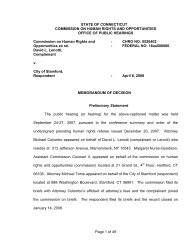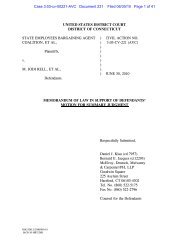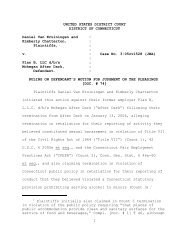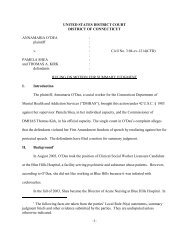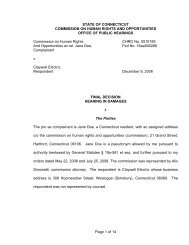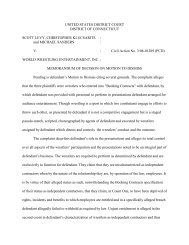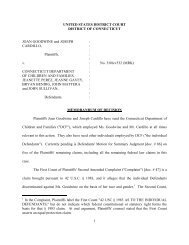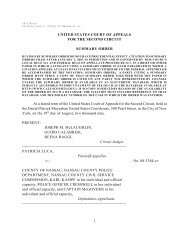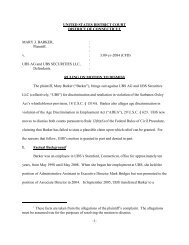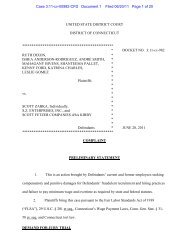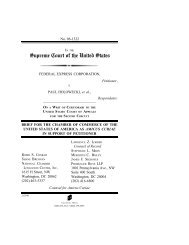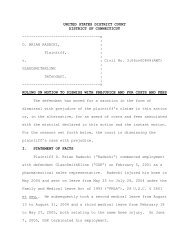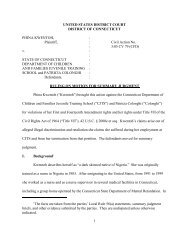Tucker v. Journal Register East - Connecticut Employment Law Blog
Tucker v. Journal Register East - Connecticut Employment Law Blog
Tucker v. Journal Register East - Connecticut Employment Law Blog
You also want an ePaper? Increase the reach of your titles
YUMPU automatically turns print PDFs into web optimized ePapers that Google loves.
is, <strong>Tucker</strong> need not show anything more than “general corporateknowledge that the plaintiff has engaged in a protectedactivity.” Gordon v. New York City Bd. of Educ., 232 F.3d 111,116 (2d Cir. 2000); see Reed v. A.W. <strong>Law</strong>rence & Co., Inc., 95F.3d 1170, 1178 (2d Cir. 1996) (finding knowledge requirement“easily proved” because the corporate entity was aware ofplaintiff’s complaints). Furthermore, “a jury . . . can findretaliation even if the agent denies direct knowledge of aplaintiff’s protected activities, for example, so long as thejury finds that the circumstances evidence knowledge of theprotected activities . . . .” Gordon, 232 F.3d at 117; see Jute,420 F.3d at 175. (citing Gordon to support conclusion that a jurycould divine employer’s knowledge of plaintiff’s protectedactivity from circumstantial evidence). Additionally, in Jutethe Second Circuit indicated that a close temporal proximitybetween a plaintiff’s conduct and an adverse employment actiontaken against that plaintiff is a factor in finding the requisiteknowledge by an employer. Jute, 420 F.3d at 175 (finding thatplaintiff’s removal from company team only one day after beingnamed a witness for plaintiff against their common employer the“most convincing” indirect evidence of employer knowledge).<strong>Tucker</strong> has set forth a sufficient basis upon which a jurycould reasonably find that Walsh, as well as the <strong>Register</strong>, knewof her protected activity when her employment was terminated.-16-



